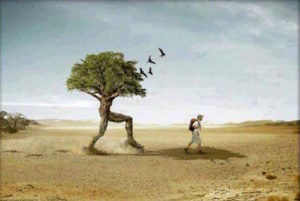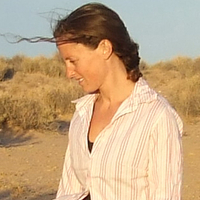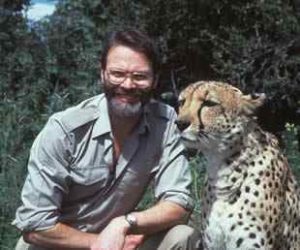
I recently posted a blog (please read it before continuing) concerning an exciting new concept called Compassionate Conservation. It is exciting to me because of the way it connects all the dots relating to animal welfare, the environment, and human health.
Unlike traditional conversation, Compassionate Conservation does not eschew man’s role and impact (positive or negative) on the environment, but rather recognizes it for what it is as a predicate for applying the best animal welfare practices with conservation biology in a way that protects individual animals and their habitats.
Did you catch that? Compassionate Conservation recognizes populations of animals as distinct individuals. Conventional conservation has tended to think of animal populations as homogenous, abstract entities called herds, flocks, pods, schools, swarms, prides, troops or colonies.
Compassionate Conservation recognizes the individual in the herd, flock, pod, school, swarm, pride, troop or colony – and further, recognizes each individual’s desires, needs and capacity to suffer.
In retrospect, it seems clear that pioneer conservationists like Jane Goodall, Rachel Carson and others started pointing us towards a more compassionate and responsible way of understanding animals and the environment years ago.

However, thanks to the recent work of Arian Wallach and others it is becoming ever clearer that a holistic understanding of animal welfare science can enlighten and enhance conservation practices.
Most exciting to me is how Compassionate Conservation puts animal welfare in a context that can lead to better conservation outcomes for every species, whether native or invasive, while at the same time increasing stakeholder support, even the support of initial critics…
Here is what others are saying about Compassionate Conservation:

“At the heart of Compassionate Conservation lie individuals: individual animals, individual species, habitats and ecosystems and the need for their support and protection”
“Compassionate Conservation brings together the most important evidence available: credible science and informed popular sentiment. An overpowering combination.” – Will Travers, CEO, the Born Free Foundation UK and International Patron of the Centre

“Compassionate conservation is a new mindset and social movement that translates discussions and concerns about the well-being of individuals into action”. “…it is a good beginning for getting individual well-being into conversations about a wide variety of conservation projects”.
“Compassion for animals should be fundamental for conservation because poor conservation outcomes are often consistent with the mistreatment of animals.” – Marc Bekoff, Professor of Ecology and Evolutionary Biology, University of Colorado, Boulder, USA and International Patron of the Centre for Compassionate Conservation

“Compassionate conservation is conservation with a heart. It puts the humanity back into caring for the natural world. This isn’t to say that it advocates anthropomorphic bunny-hugging, but instead it demands a respect for the individual. Anyone who has had the good fortune to get to know individual wild animals, as I have with gorillas and elephants, will realize that each individual in a population matters, and conservation policies should take into account the welfare of individuals as well as the fate of species and their habitat. This may be a new approach in Western science, but in fact it brings modern conservation thinking into line with long-held Asian traditions that respect all life.” – Ian Redmond OBE

“Animal welfare is not only a potent component of the conservationist’s tool-kit, it is also an important consideration in the choices that conservationists face” – Will Travers OBE and Prof. David Macdonald CBE, University of Oxford

“As human population and consumption of resources rise to unprecedented levels, how we live – our buildings, transportation systems, energy use, food production methods and so on – have become the dominant influence on the other inhabitants of the planet. Challenges to “conservation” and challenges to “animal welfare” now tend to merge. We need a new and coherent ethic that includes people, animals and the natural world.” – Prof. David Fraser CM, University of British Columbia
“Compassionate Conservation considers animals as individuals, not merely as objects or metrics to be traded off for the good of populations, species or biodiversity.
“A paradigm shift in our approach to other animals is vital because of what we now know about the cognitive and emotional capacities of other animals and their ability to suffer (sentience).
“With a guiding principle of ‘first do no harm’, compassionate conservation offers a bold, virtuous, inclusive, and forward-looking framework that provides a meeting place for different perspectives and agendas to discuss and solve issues of human-animal conflict when sharing space.” – The Centre for Compassionate Conservation
